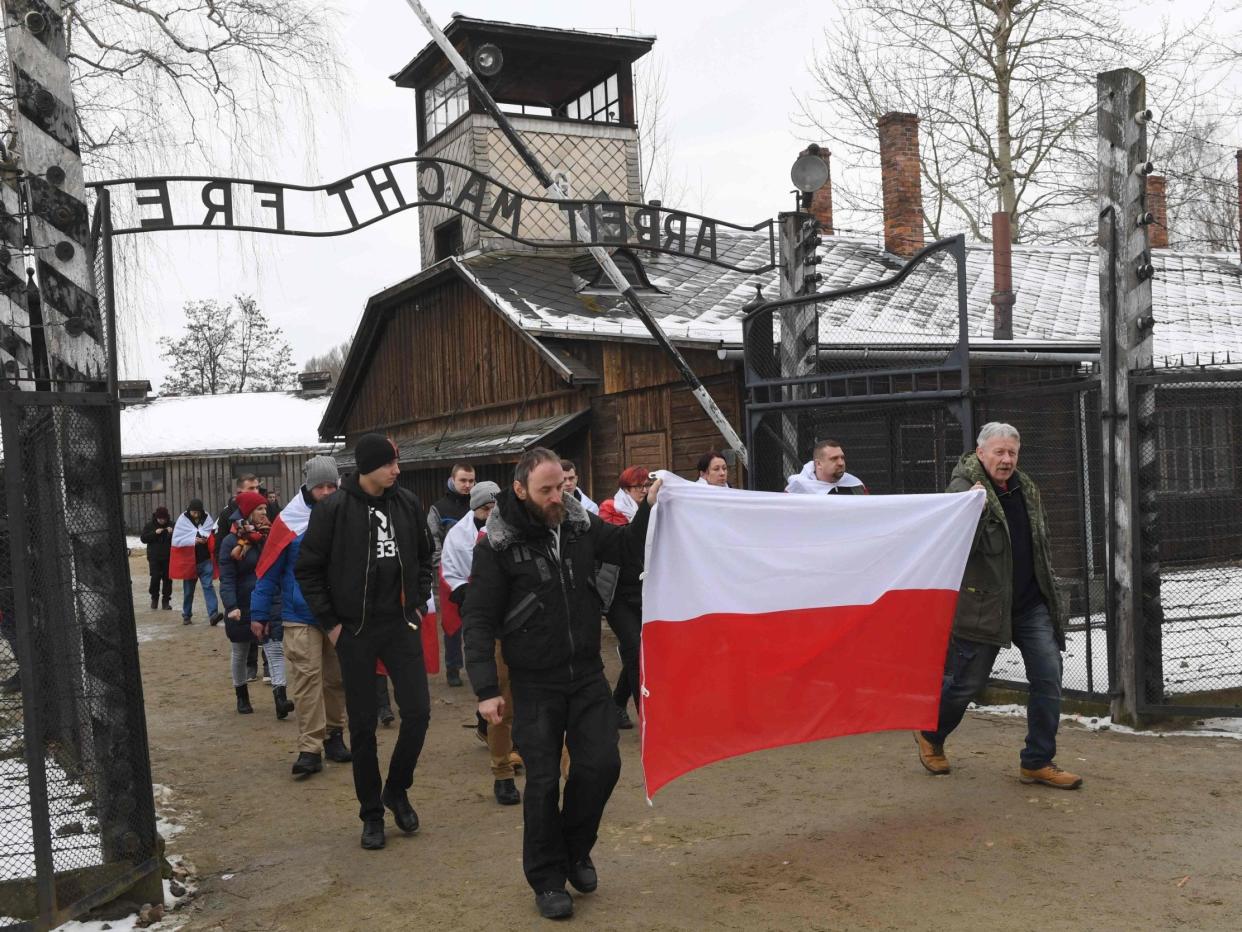Poland is in denial about its role in the Holocaust – it was both victim and perpetrator

The political football match that is antisemitism had barely paused for halftime when, on Tuesday, a certain Arkady Rzegocki booted the Holocaust across the pitch and smacked me square in the face.
In an opinion piece for these very pages, the Polish ambassador to the UK wrote that “Holocaust Memorial Day is perhaps the best opportunity to highlight the tragic events of the past and the reasons for them.” In truth, Rzegocki took the day as an opportunity to settle old scores with his country’s former ruler and now nemesis, Russia.
The ambassador had been angered by a series of inflammatory statements in which Putin accused Poland of collaborating with the Nazis, and condemned the country’s persistent antisemitism – the kind of wind-up the Russian president has been practising for years, though (perhaps inspired by events in Britain) with increasing intensity in recent weeks. In a retort redolent of the no-you’re-an-idiot squabbles of my childhood, Rzegocki responds to Putin’s accusations not by addressing them, but by simply flipping them, insisting that it was Russia that conspired with the Third Reich. Rzegocki’s evidence for this claim was a recent European Parliament resolution that asserted the Soviet Union and Nazi Germany were jointly responsible for the outbreak of WWII via the Molotov-Ribbentrop pact, the regimes’ plan to divide up Europe after the war.
“These are undeniable facts, the truth,” huffed Rzegocki, “and, unfortunately for Putin, they come from one of the world’s most important and reputable institutions.”
To be fair, Putin’s comments are but the latest phase of a national project of sanitising the grubbier aspects of the Great Patriotic War (the clue’s in the nickname); most notably Stalin and Hitler’s collaboration at its outset, though also the Katyn forest massacre to which, as Rzegocki says, it took the Soviets almost half a century to confess. Rzegocki is right that one of Russia’s primary tactics of war whitewashing is distraction, a “continuous effort to divert attention from its dark wartime past” by drawing attention to others’, usually Poland’s. Yet the Polish ambassador’s tit-for-tat response is symptomatic of a broader trend towards historical revisionism in which both nations are active participants.
Since the right-wing nationalist Law and Justice Party took power in 2015, Poland has set about rewriting its story of the Holocaust to give itself a more flattering part. In 2017, the party reduced the number of times Polish schoolchildren would learn about the Holocaust from three to two, and modified the curriculum to emphasise Polish heroism in rescuing Jews.
A year later, the government upped the ante, outlawing the description of Auschwitz as “Polish death camps”, and making it a criminal offence – reduced, after international backlash, to only a civil offence – to attribute the Nazis’ crimes to the Polish state or nation. The law uncannily resembles that introduced by the Kremlin in 2014, forbidding the spreading of “false information about the Soviet Union’s activities during World War II”, including by comparing Nazi and Soviet crimes.
The common thread is nationalism. Both Russia and Poland have been gradually tailoring the Holocaust narrative to fit the patriotic mythoi on which their nationalist governments depend: Russia by hamming up its triumphalism, Poland its pitifulness.
Researchers Lindsay Daugherty and Jeremy Epstein contextualise Polish national negativity in their chapter of last year’s Holocaust Remembrance Project report: “Poland’s historic understanding of itself as the ‘Jesus of the Nations’, a deeply religious country which has suffered for too long under the might of its powerful neighbours,” they write, “renders its status as a country of victims, rather than oppressors, core to its self-understanding.”
This has led to what they call a kind of “competitive victimisation” with Polish Jews. In Poland’s retelling of the Holocaust, the number of Poles who died is often cited as six million. Coincidentally it’s the same as the number of European Jews who perished as well. It’s a competition that has, ironically, generated a new wave of Polish antisemitism.
Rzegocki has swallowed this sense of victimhood hook, line and sinker. “Russia”, he complains, is “unfairly turning perpetrators [itself] into victims” – and by extension, turning victims (Poland) into perpetrators. Yet like any event of such monstrous proportions, the Holocaust eludes binaries – and nowhere more so than in Poland.
Among the Nazis’ foremost victims were Polish non-Jews, almost two million of whom died in concentration camps. Non-Jewish Poles were also some of Polish Jews’ principal saviours, the country being the home to the largest number of those that Yad Vashem – Israel’s Holocaust memorial and museum – has dubbed The Righteous Among the Nations.
However, Poles were also some of the Nazis’ most enthusiastic abettors: in 1941 and under no instructions from their German occupiers, the locals of Jedwabne herded 300 of their Jewish neighbours into a barn and set it alight, burning them alive. The uncomfortable and irreducible truth of the Holocaust – one that sits uneasily with Poland’s simplistic self-conception – is that Polish people were both perpetrators and victims.
On Thursday, the Fifth World Holocaust Forum will see 41 heads of state converge on Jerusalem – though not Poland’s, who pulled out after being denied a speaking slot to hit back at Putin. Then on Monday, thousands of Auschwitz survivors, and a handful of international dignitaries, will travel to the camp to mark the 75th anniversary of its liberation; needless to say, Putin will not be joining them.
Yet while puerile populists nurse their wounded national pride, the rest of us should model humility. The Holocaust implicates us all – and we have a collective responsibility to prevent it from happening again.


